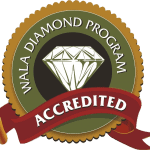5 Things You Should Know About Alzheimer’s Disease

Did you know November is Alzheimer’s Disease Awareness month? More than 5 million Americans are living with Alzheimer’s, and it is estimated by 2050 up to 16 million will have the disease. Learn more about Alzheimer’s disease:
1. Alzheimer’s disease is the most common cause of dementia. It is a degenerative brain disease that affects memory, speech and problem-solving skills. In later stages of the disease, it can even impact normal bodily functions, such as chewing, swallowing and walking. Alzheimer’s ultimately impacts a person’s ability to lead a normal life.
2. Alzheimer’s disease is the sixth leading cause of death in the United States. Unlike other diseases, it cannot be prevented, cured or slowed down. The Alzheimer’s Association works to advance research for new treatments and ways to prevent the disease. Ultimately, through its research it hopes to find a cure for Alzheimer’s.

3. One of the first symptoms of Alzheimer’s disease is a gradual decrease of memory. Other common symptoms include difficulty completing regular tasks, confusion, problems with speaking and issues solving problems. If you notice a loved one experiencing any of these symptoms, encourage them to see a doctor.
4. Although there is not one specific known cause of Alzheimer’s disease, age is considered the greatest risk factor for getting the disease. Most people who are diagnosed with Alzheimer’s are over the age of 65. Even though age is the greatest risk factor for getting the disease, Alzheimer’s is not considered a normal part of aging.
5. There is not a known cure for Alzheimer’s disease, but there are ways to treat it. There are some prescription drugs available that increase the amount of neurotransmitters in the brain. There are also medicine-free ways to treat the disease, such as music therapy or memory therapy. We provide many different therapy programs at Valley VNA, such as Lyrics and Laughter, Poetry at Play, and Music and Memory.

To learn more about Alzheimer’s disease, visit alz.org. If you have questions about how we help individuals with Alzheimer’s disease, please contact us.





